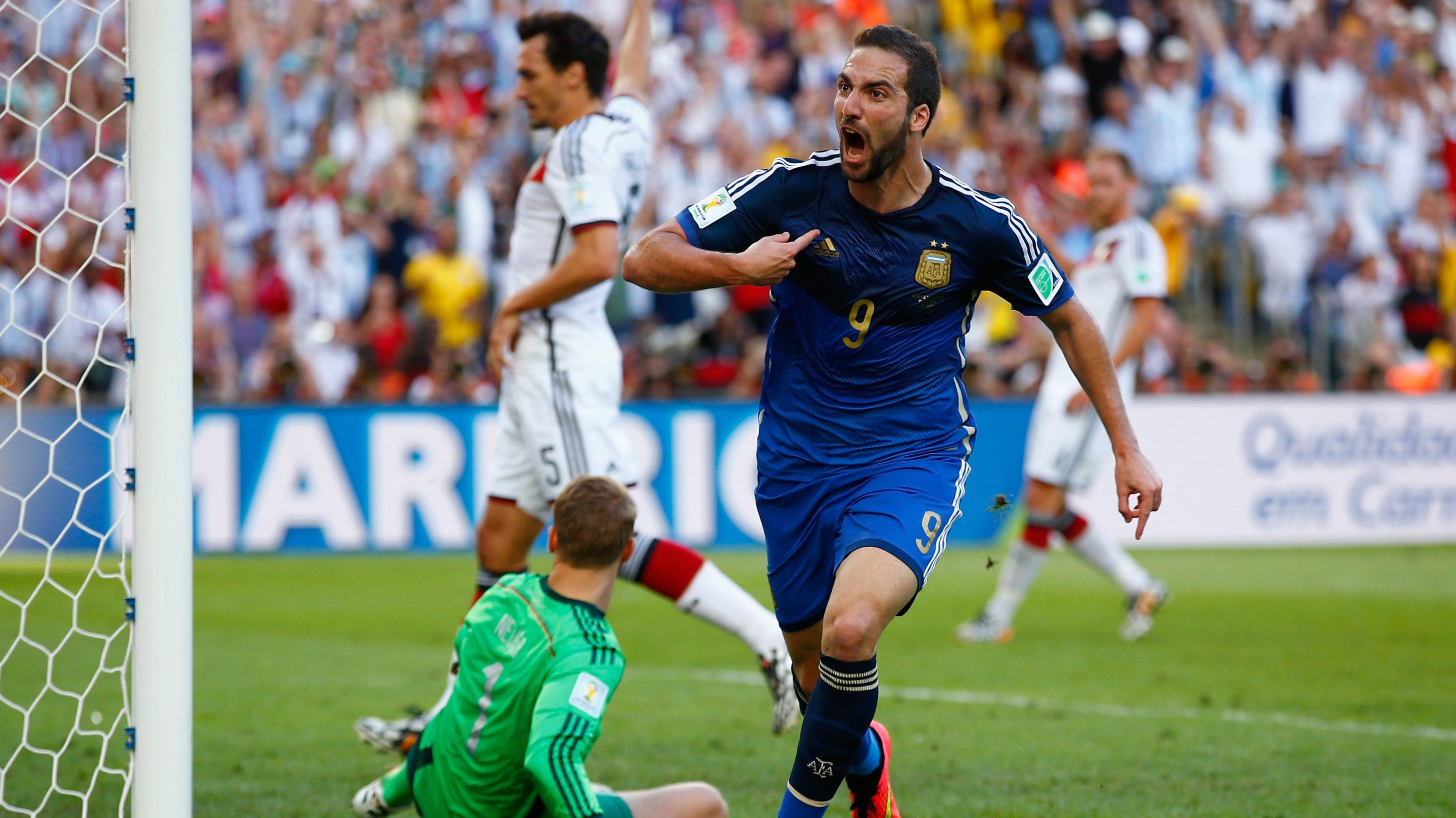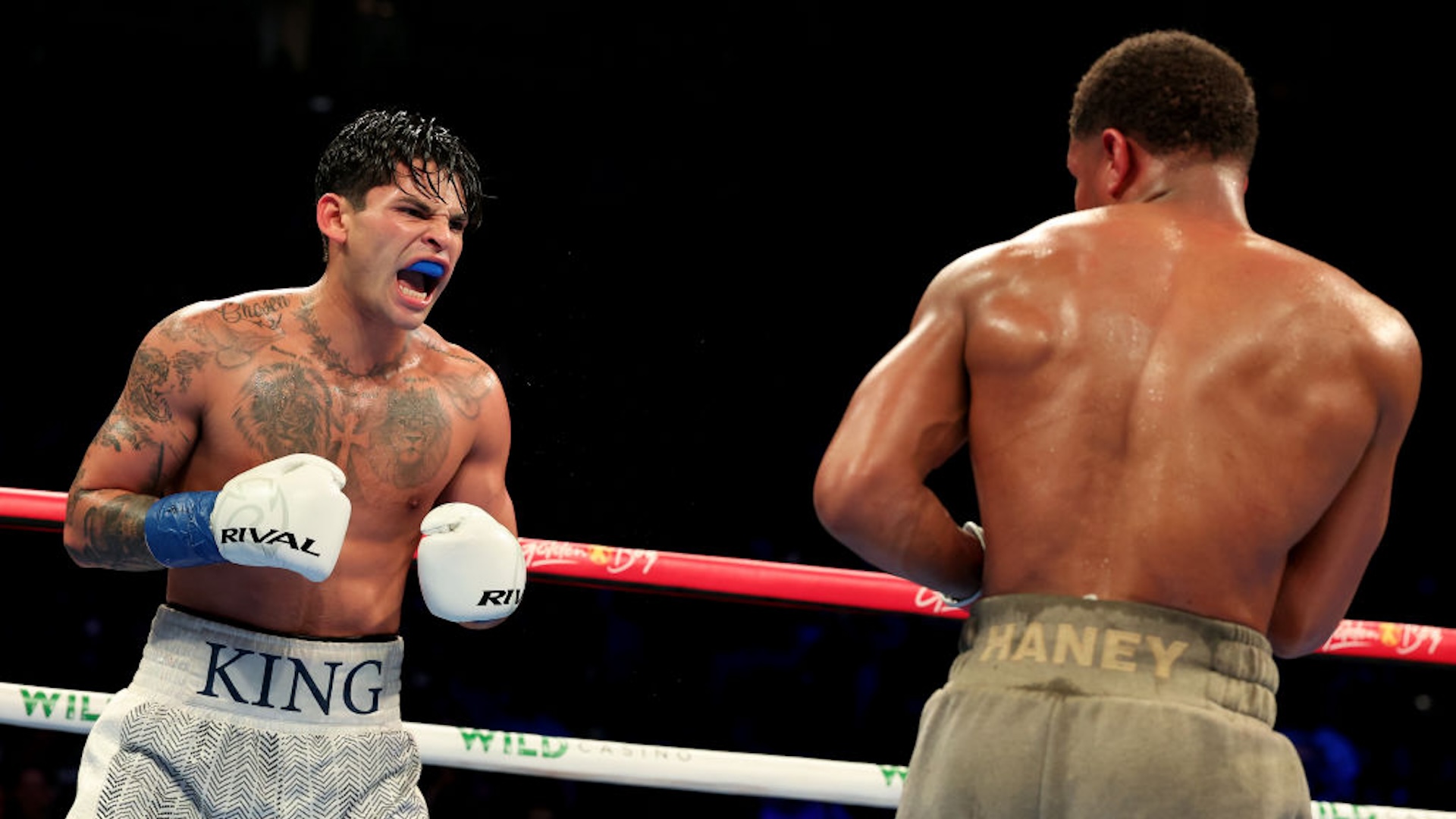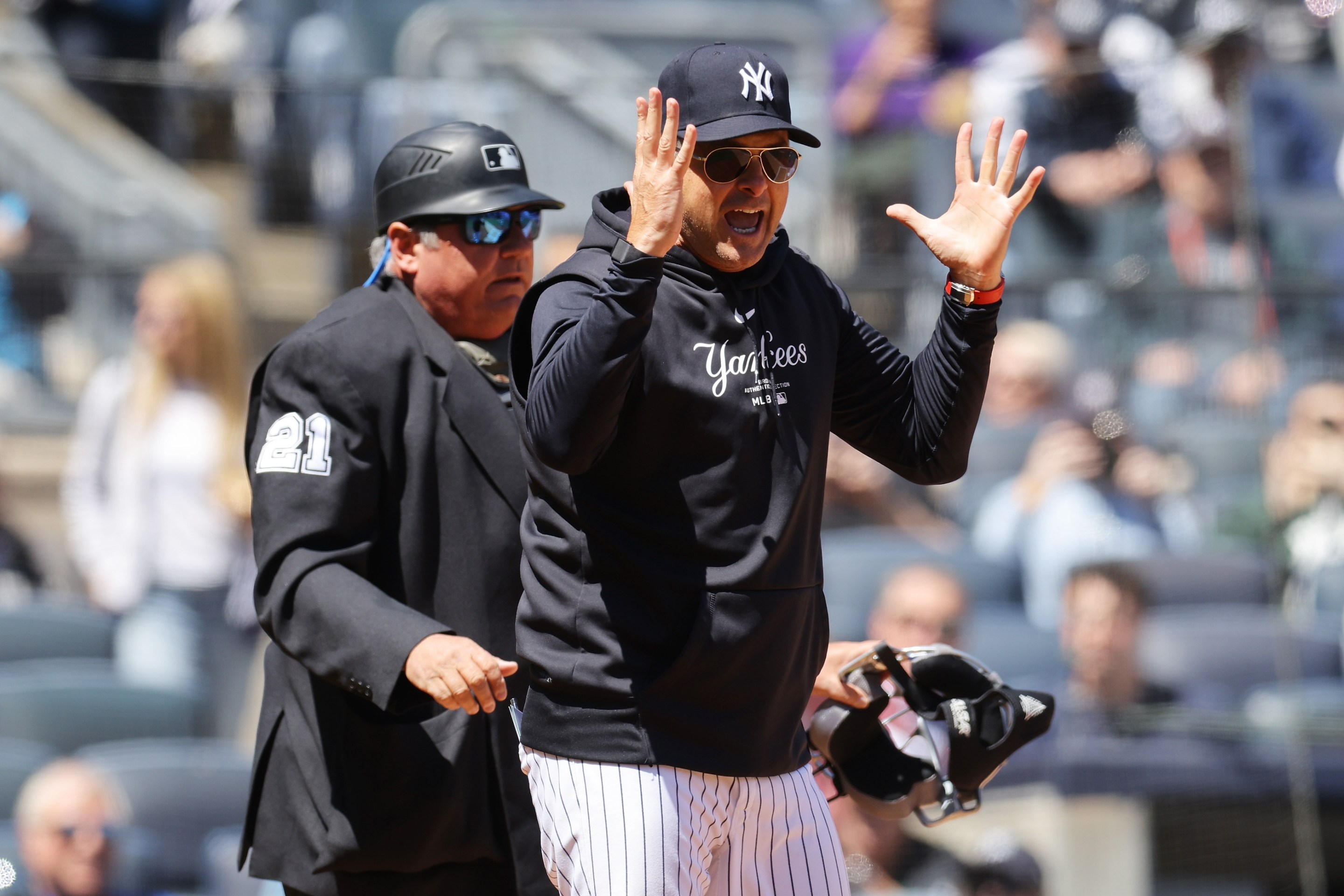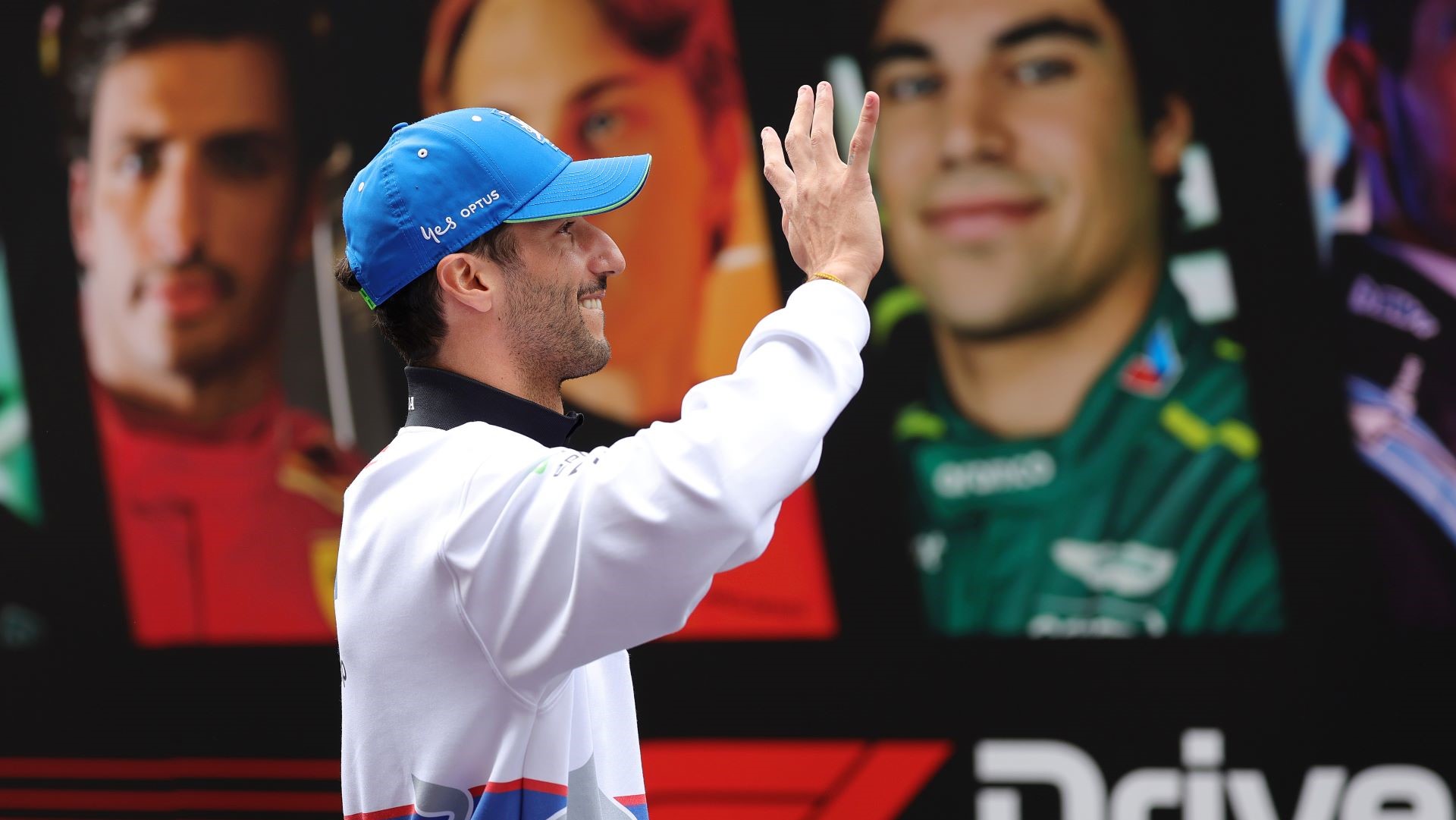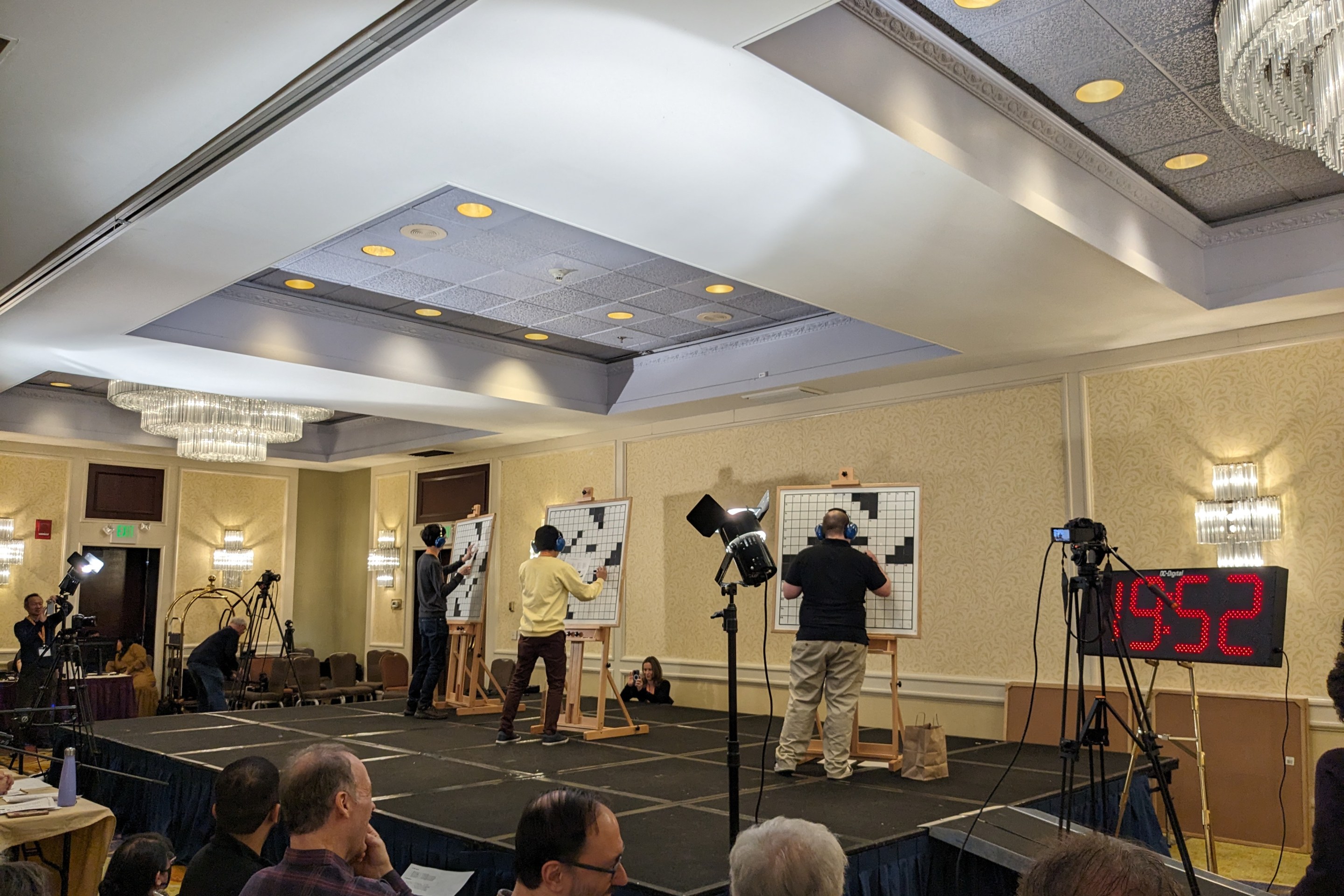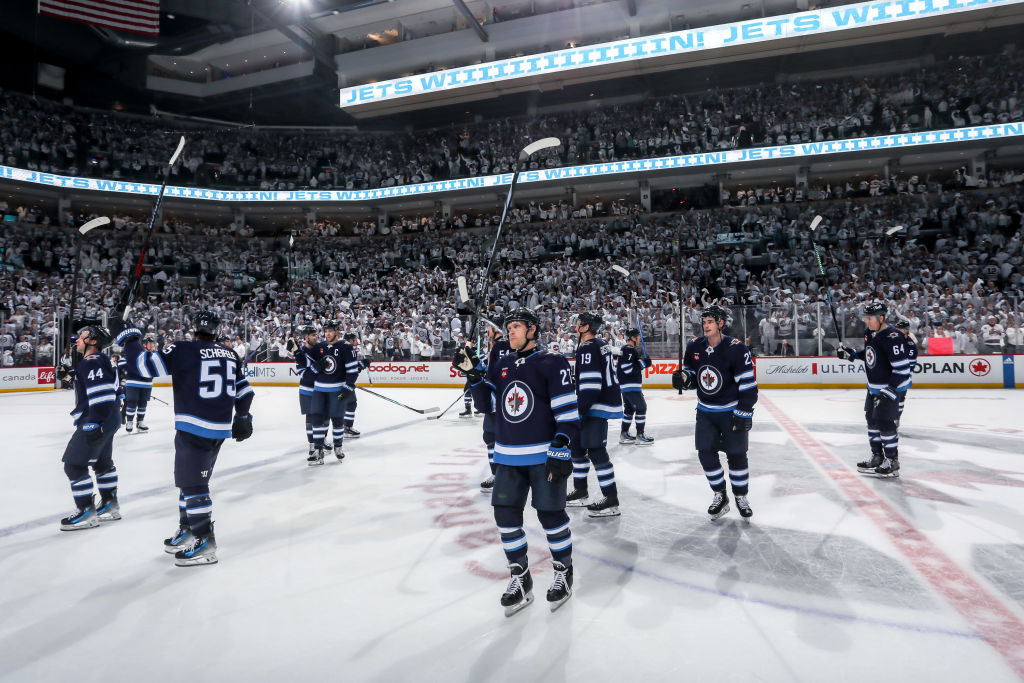Gonzalo Higuaín Deserves More
12:48 PM EDT on September 18, 2020
It's more than a little ironic just how well the above image sums up the perception of Gonzalo Higuaín's career. Taken in the first half of the 2014 World Cup final, the Argentine striker had just slotted a cross past Germany's goalkeeper Manuel Neuer, seemingly giving his country the lead in the biggest game in world sports. He raced off celebrating with appropriately deranged energy, joyously yet agonizingly unaware of the linesman's raised flag that had correctly ruled him offside. Germany, of course, went on to win the match, 1–0, with an extra time winner from Mario Götze.
What makes the image of Higuaín celebrating the-goal-that-wasn't so befitting of his career is how it captures the narrow boundary between success and failure that Higuaín calls home. Higuaín has been wildly successful throughout his career, and is inarguably one of the most gifted center forwards of his generation. His name is synonymous with goals, because he has scored bucket-loads of them for some of the biggest teams in the world during his decade-long stint as one of the world's best strikers.
At the same time, Higuaín is also synonymous with failure, with "choking," because of a few indelible, narrow misses in big moments like in the photo above. The margins in soccer are so slim, and the chances to make the difference so infrequent, that even an entire career as laden with goals and victories as Higuaín's can be seen as insufficient or disappointing by just a few shots that drag a few inches wide, or a couple runs that stray a couple feet offside. And now that Higuaín's European career is over, with the announcement that he has signed on with MLS's Inter Miami, it seems a good time to appreciate the many great things Higuaín did do, even if those probably won't ever overshadow those few things he failed at.
A natural penalty box striker, Higuaín has that almost mystical ability to always be in just the right place to nod in a looping cross or smash home a rebound. At his peak he wasn't the fastest forward, nor did he participate in the game as much or in as varied ways as some of the prominent strikers of his generation. But when it came to getting to the spot in the box where a pass would find him and banging the ball past the goalie, he was up there with the very best.
The French-born striker started his career Argentina, at River Plate, but became a household name at Real Madrid, joining for €12 million as a 19-year-old midway through the 2006–07 season. It took a couple seasons for Higuaín to get his bearings in Spain, but once he did, he exploded. His breakout came in the 2008–09 season when he was Madrid's top scorer with 22 goals in La Liga. He topped the team's scoring charts again the following season, leading the line of a new-look Madrid that saw the addition of Cristiano Ronaldo, Xabi Alonso, and Karim Benzema.
It was Higuaín's battle for preeminence with Benzema that came to define his time with the Blancos and set the tone for the public's impression of him as a player. Higuaín and Benzema were in many ways opposites. The former did most of his damage inside the penalty area; the latter's talents were most evident everywhere else on the pitch. You put Higuaín on the pitch and you expected him to score; you played Benzema and you expected him to help the team score. Both Higuaín and Benzema were very good players during their shared years at Madrid, and more than any large ability discrepancy, the preference for one over the other had more to do with differences in playing philosophy, the particular requirements of one who plays alongside Ronaldo, and the evolving demands of the striker position.
Because the argument between the two was so close, neither striker fully consolidated the starting role for himself in their four seasons together. The striker position was essentially a timeshare the two split evenly. Higuaín did indeed score more, racking up more league goals than Benzema in every season except his injury-marred 2010–11 campaign. However, Benzema's fluid, complimentary, all-encompassing style was a better fit for Madrid's more modern style of play, especially in light of the Frenchman's seamless partnership with Ronaldo, the team's true goal-scoring force. Because of that fit and the club's desire to turn the keys over to Benzema full-time, the club sold Higuaín to Napoli in the summer of 2013.
In stepping down a wrung from Europe's elite to a club like Napoli, Higuaín found his true level. At Napoli, Higuaín could be the unquestioned focal point for a very good team, one that asked only that he do the one thing he did better than almost anyone else: get in the box and score. All three of Higuaín's Napoli seasons were successful, none more so than his final one in 2015–16 in which he broke the Serie A single-season scoring record with 36 goals. (Lazio's Ciro Immobile would tie Higuaín's record in the 2019–20 season, though the Italian did it with 14 penalty goals, compared to the Argentine's three.)
Higuaín's success at Napoli was unfortunately accompanied by his ill-fated exploits with the national team. During those years, Higuaín was one of the premier poachers in the world, and so his place in the Albiceleste starting XI wasn't particularly questioned. On top of that, Argentina was (on paper) incredibly successful during that stretch, playing in the finals of three consecutive major international tournaments: the 2014 World Cup, the 2015 Copa América, and the 2016 Copa América Centenario.
Unfortunately, the striker's crucial role in getting Argentina to those finals was overshadowed by the painful losses the team suffered in those matches, all three of which were marked by at least one grievously missed opportunity by Higuaín. A nation as outrageously demanding and unsympathetic to anything other than trophies as Argentina didn't look upon Higuaín's and his teammates' failure kindly, and has regarded that generation of Argentine players with, at best, indifference. In an interview with TyC Sport (translated by Mundo Albiceleste), Higuaín lamented how his international career has come to be defined by the few misses instead of the more regular successes:
I scored nine goals and Leo (Messi) 10 goals in the World Cup qualifiers leading up to the 2014 World Cup in Brazil and no one remembers that. I’m among the top five or six goalscorers (for Argentina) and no one remembers. They only remember the specific things in moments where I suffered but now I have overcame it.
Higuaín's legacy wasn't helped by his move from Napoli to Juventus in 2016, which turned him from a hero into a pariah overnight in the one place where he was truly beloved. That move to Juve is also seen as something of a disappointment, even though he gave them two strong, Serie A–winning years, the first of which he helped the team to the Champions League final. He fell off after that, with disastrous loan spells at AC Milan and Chelsea and an unremarkable final season back at Juve solidifying his reputation as a washed choker. That three international matches define his career more than hundreds of club goals is a shame, but to anyone paying attention, his poor performances in those finals seem less like a definition and more like blips in time.
But a blip in a game like soccer can mean the difference between a wondergoal and a comical miss, the difference between a legend-defining victory and a legacy-dooming loss. A fair appraisal of Higuaín would have him closer to legend-status than scapegoat-dom, but sports aren't fair, and he did miss those chances and has to live with the consequences. In South Florida, Higuaín will have the chance to keep growing his goal tally and his bank account, which will probably ease any pain he might feel when thinking about what could've been. There are far worse fates than being great and rich and maybe only a little unhappy when thinking about how you didn't get your just due. As long as he stays away from Twitter the next time he misses a sitter, he should be fine. It's less than he deserves, but more than enough.
If you liked this blog, please share it! Your referrals help Defector reach new readers, and those new readers always get a few free blogs before encountering our paywall.
Staff Writer
Stay in touch
Sign up for our free newsletter
